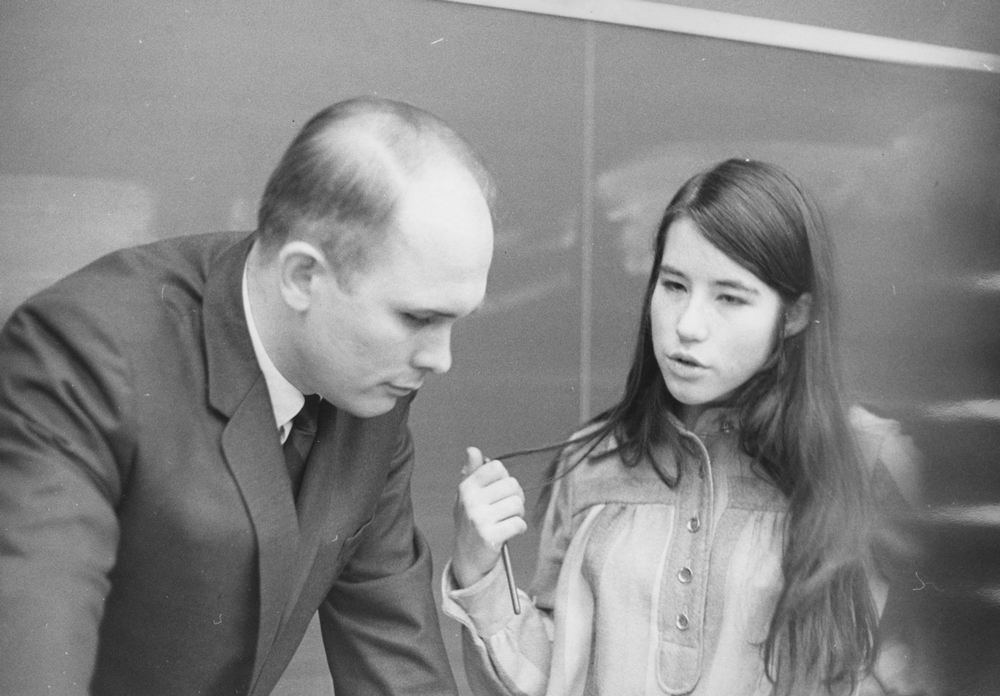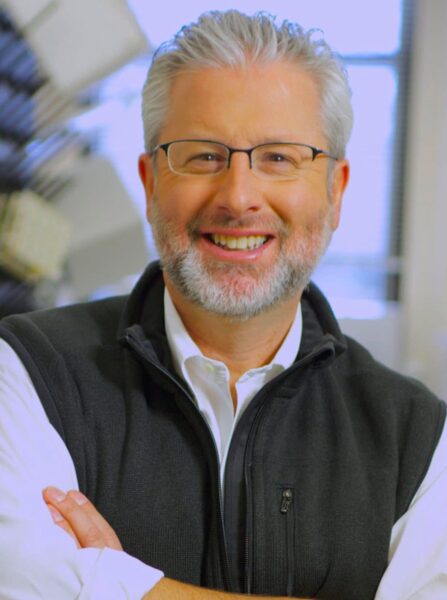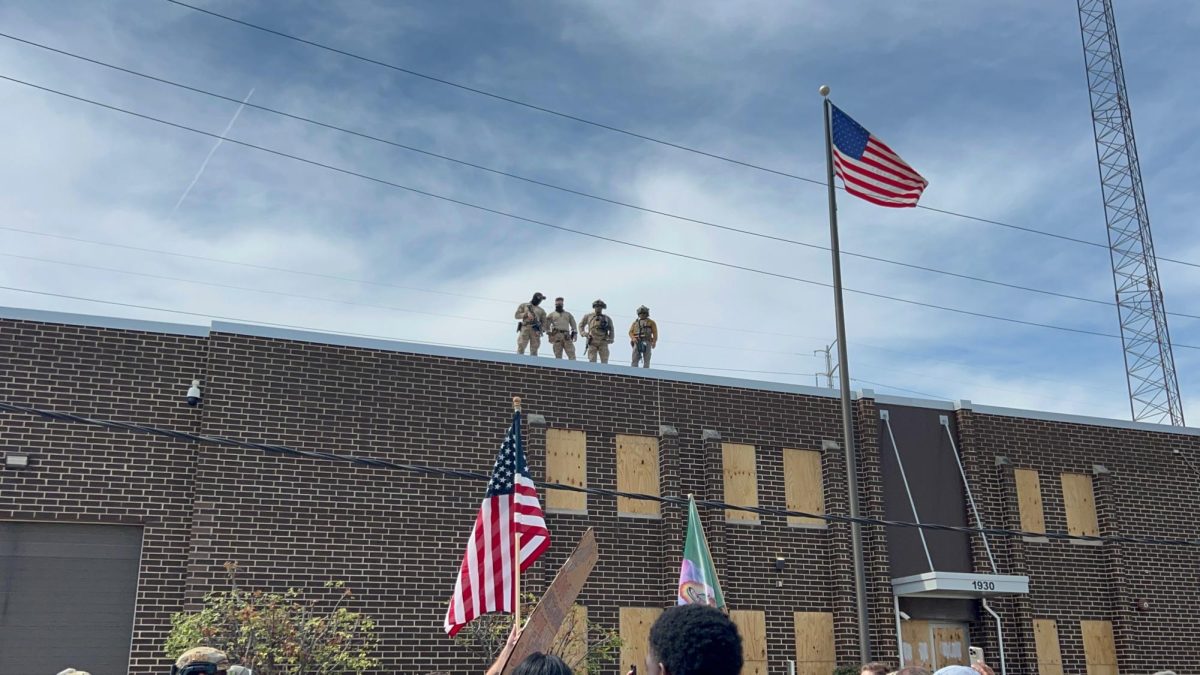The University Theater community is distraught over the impending loss of its shop at 5020 South Cornell Avenue, which was leased by the University to the Hyde Park Art Center on June 30, 2003, for 35 years.
While expressing their support for the arts in Hyde Park, those involved in UT say they are not pleased with the way in which the matter was handled. Those who are active in UT say they are confused about the future of their shop, an integral element to the arts community on campus. Members of the organization said that the loss of a UT shop would cripple the community.
“The use of the Cornell Building for the UT shop was always seen as temporary until we could find another temporary location and ultimately relocate it to the planned Center for the Creative and Performing Arts,” said Dean of the College John Boyer. “Over the next several months, the University will be working with UT to find another location for the shop.”
As the Maroon went to press, the UT student staff and student committee said it planned to deliver a formal letter to University officials on Friday regarding the status of the UT shop space.
Unimaginable Resources
University Theater is the largest RSO on campus, involving 10-25 percent of the student body each year. The shop facilitates building, designing, and painting scenery, furniture, costumes, and other props. Some College classes, such as Scene Design, and Theory and Control Systems of Technical Theater are taught in the shop.
The shop also serves other organizations on campus besides UT, including the GSB Follies, Faculty Revels, Gilbert and Sullivan, Festival of the Arts, Le Vorris and Vox Circus, University Chorus, Fire Escape Films, and Rockefeller Chapel.
The Cornell building is also occupied by the Office Machines Department, the section of Facilities Services that supports copiers and printers on campus and in the hospitals.
“The UT scene shop is a classroom with unimaginable resources,” said Pete Sloane, a light designer at UT and a member of its student committee. “To remove this invaluable resource from UT, and the University proper, would be to break the back of the wonderful technical achievements that students have made since we’ve had this shop.”
The shop was previously located in what is now the design lab in the Mitchell Tower on the third floor of the Reynolds Club.
Ready in Time
Sources at UT say the transfer of the Cornell Avenue space to the Hyde Park Art Center (HPAC) was a possibility from the time when the UT shop first moved into the space in Spring 2001. They also contend that the relocation of the HPAC to the Cornell Avenue space had been planned to coincide with the opening of the Center for the Creative and Performing Arts (CCPA), a new center planned south of the Midway.
However, it is highly unlikely that the UT’s new space will be ready by the time it is forced to move out of its current location, according to a variety of sources.
“In an ideal world, in 2006 the Hyde Park Arts Center moves into the Cornell building at the same time that UT moves into the newly completed arts center,” said UT Director Heidi Coleman. “But, obviously, we don’t live in an ideal world.”
Coleman said that UT must now find a new space before the arts center is built.
han Kenward, a 2003 alumnus of the College who served on the student crew that renovated the Cornell Avenue space, said the construction of the CCPA “is years, if not decades, away.”
Those involved with the initial effort to obtain the UT shop on Cornell Avenue explain that it took five years of lobbying and fundraising to secure the present space. They say that it would be nearly impossible to find an alternate space within three years because no space seems to exist.
UT supporters argue that fundraising for a new shop space—even a temporary, interim space—would be virtually impossible to accomplish before 2006.
“I know of no plans to relocate the shop,” said Sloane.
Boyer has not yet commented on the apparent lack of a suitable space for relocation of the shop.
Absolute Faith
Despite apparent setbacks and miscommunication, some in the UT community remain optimistic. Coleman said she has “absolute faith” that the University is committed to the process of finding an adequate interim space for the UT shop.
The professional staff members, or “prostaff,” of UT were aware that UT’s home at the current location would be temporary. However, UT members contend that they have been blindsided by not having a time frame for moving out.
“The idea that they’d have to be out in four years wasn’t clear,” said Dave Saunders, a fourth-year in the College and UT’s assistant production manager.
Students involved in UT say they are displeased that they were not directly informed by the University of the leasing of the Cornell Avenue space to the HPAC.
90 Miles per Hour
A large part of the UT community’s ire comes from a July 9 University press release that describes the Cornell Avenue location as “an unused University of Chicago building.”
Peter Schuler, the news editor at the University News Office and author of the July 9 release, said the building was unoccupied at the time of the press release. “It had been used most recently as a press building,” he said, adding that he didn’t remember where he’d found that piece of information.
“We put these things together at about 90 miles per hour,” he said.
Students’ accounts directly contradict the press release. “Anyone who says that the building is ‘unused’ clearly enjoys turning a blind eye to student activities,” said Deborah Wolfson, a fourth-year in the College and Chair of the UT student committee. “This ‘unused’ building is a hub for learning, creating, and building skills that enrich the shows of University Theater.”
Along these lines, the Alumni Magazine published an article about the UT shop, according to Bruce Steinberg, a fourth-year in the College and master electrician for UT. “So either someone hasn’t done their homework, or someone is purposely pretending that we don’t exist,” Steinberg said.
Looking Ahead
It is not clear exactly when the UT shop will have to leave the Cornell building. The Hyde Park Art Center, for its part, still needs to raise a significant amount of money before construction on the Cornell Avenue space can begin, according to Jo Reizner, director of University real estate operations.
Reizner said it will take a minimum of 15-18 months to raise such funds.
University Real Estate Operations said they are not certain as to whether or not a written contract of any sort exists between the University and UT in regard to use of the Cornell Avenue space.
10-24-03HPAC








